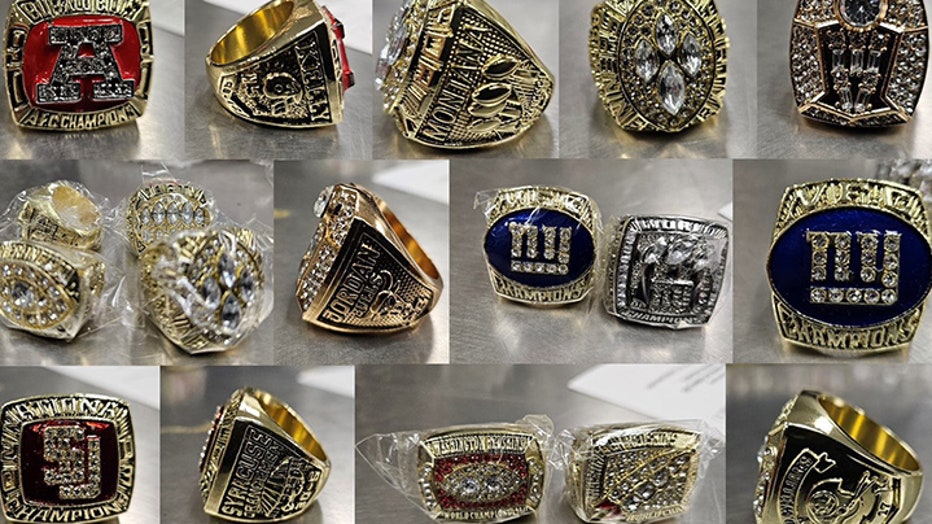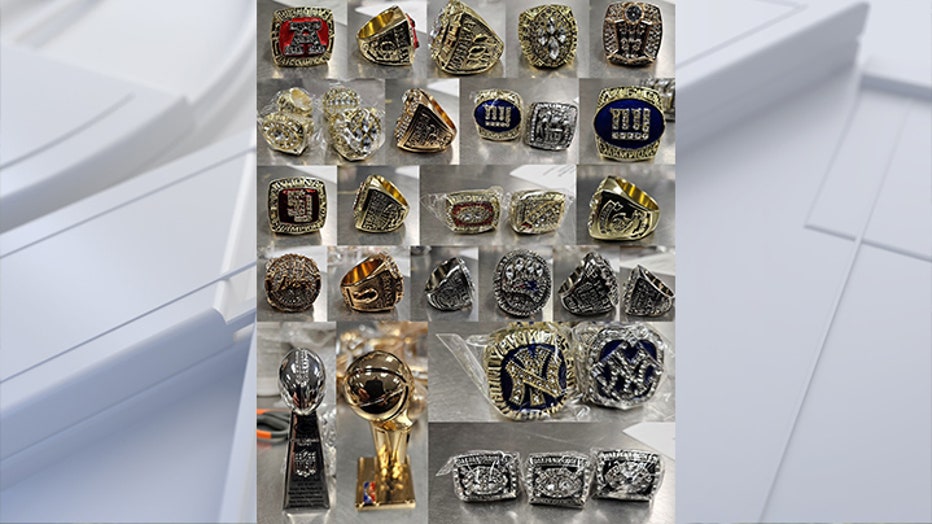Counterfeit NFL, NBA, MLB championship rings snagged in border bust
ROCHESTER, N.Y. - Border patrol officers at Rochester Port of Entry in New York have seized several championship rings for bearing counterfeit trademarks.
According to the U.S. Customs and Border Protection (CBP), Super Bowl, World Series and NBC Championship rings bearing NFL, NBA and MLB trademarks were discovered during a shipment inspection.
The Super Bowl rings featured logos from the San Franciso 49ers, Oakland Raiders, New York Giants, Washington Redskins and New England Patriots.
In addition, the World Series rings featured logos from the New York Yankees, and the NBA Championship rings featured logos from the Los Angeles Lakers and Chicago Bulls.

CBP officers at the Port of Rochester in New York discovered counterfeit rings. (Credit: CBP Buffalo)
There were also NCAA basketball championship rings allegedly from Syracuse University.
After a thorough examination of the merchandise, CBP determined that the items were not authentic, so they were subsequently seized for bearing counterfeit trademarks.
Had these items been genuine, officers said the total Manufacturer Suggested Retail Price (MSRP) value would be approximately $9,000.
"Our officers continue to play a critical role in protecting the consumer from counterfeit items," said Rochester Port Director Ronald Menz. "Counterfeiters scam consumers into buying low quality replicas online. Our officers diligently work to protect the American consumer by intercepting this illegitimate merchandise."

Super Bowl, World Series, and NBA Championship rings were seized for bearing counterfeit trademarks. (Credit: CBP Buffalo)
Last month, "counterfeit or mishandled" Botox left women across nine states with harmful reactions, prompting an investigation by U.S. health officials.
RELATED: 'Counterfeit' Botox warning: Women hospitalized in several US states, CDC says
On Wednesday, the Centers for Disease Control and Prevention issued an update, saying 11 (73%) people were hospitalized and 6 (40%) were treated with botulism antitoxin because of concerns that the botulinum toxin could have spread beyond the injection site. Among those tested, all received negative results.
This story was reported from Los Angeles.

